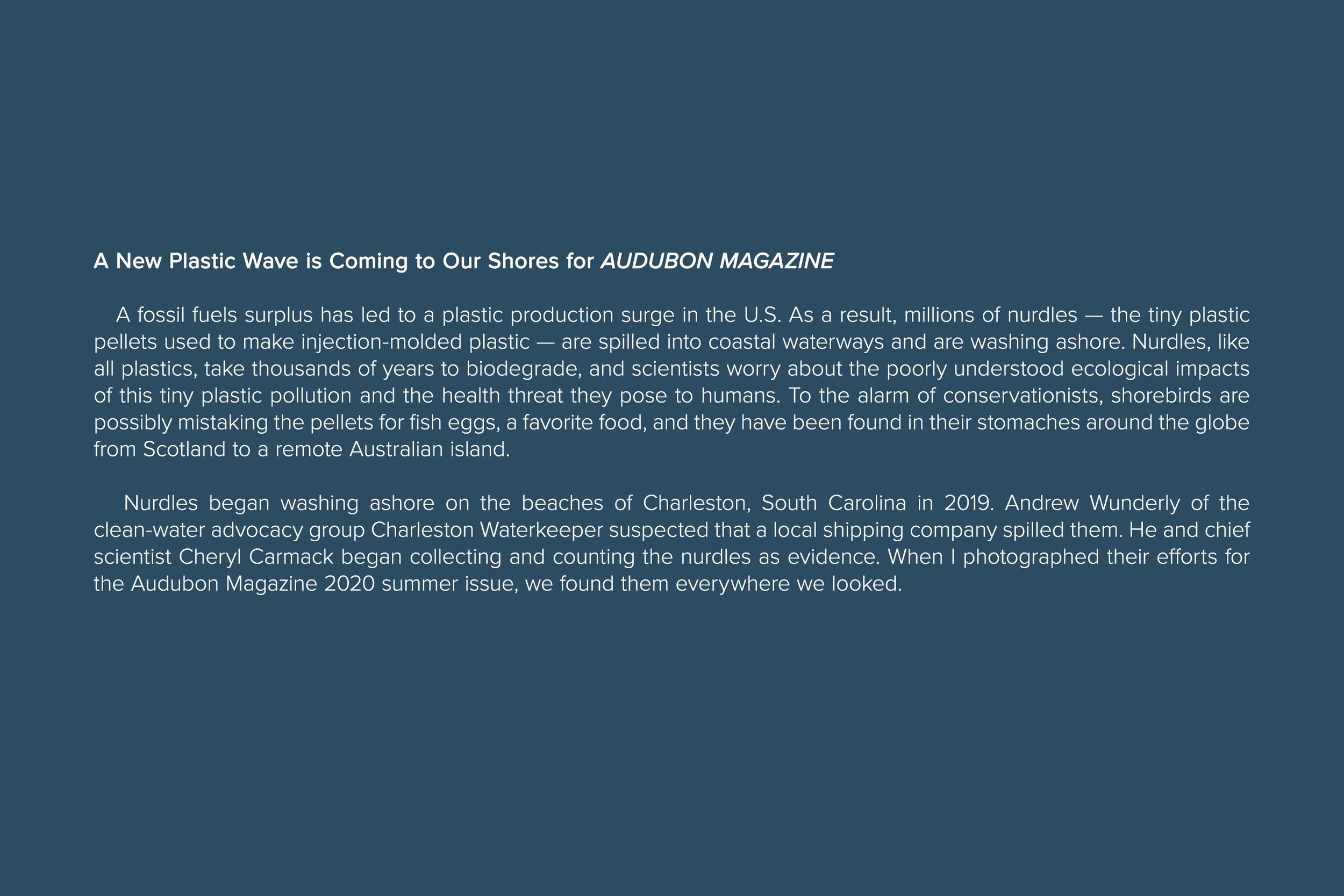
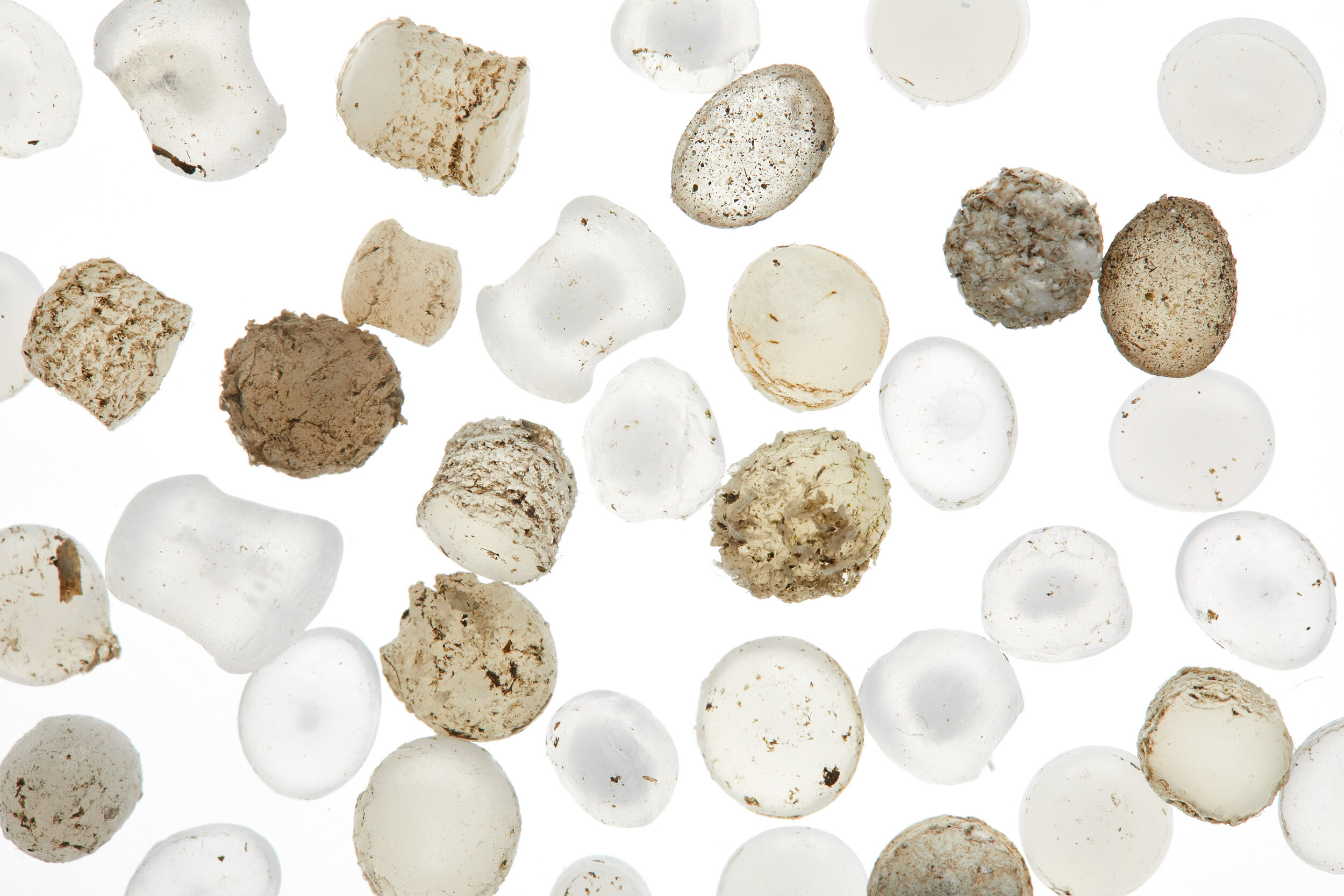
A close up of nurdles collected at Waterfront Park in Charleston, S.C. The color and shape of the pellets can reveal how recently the pellets were spilled.
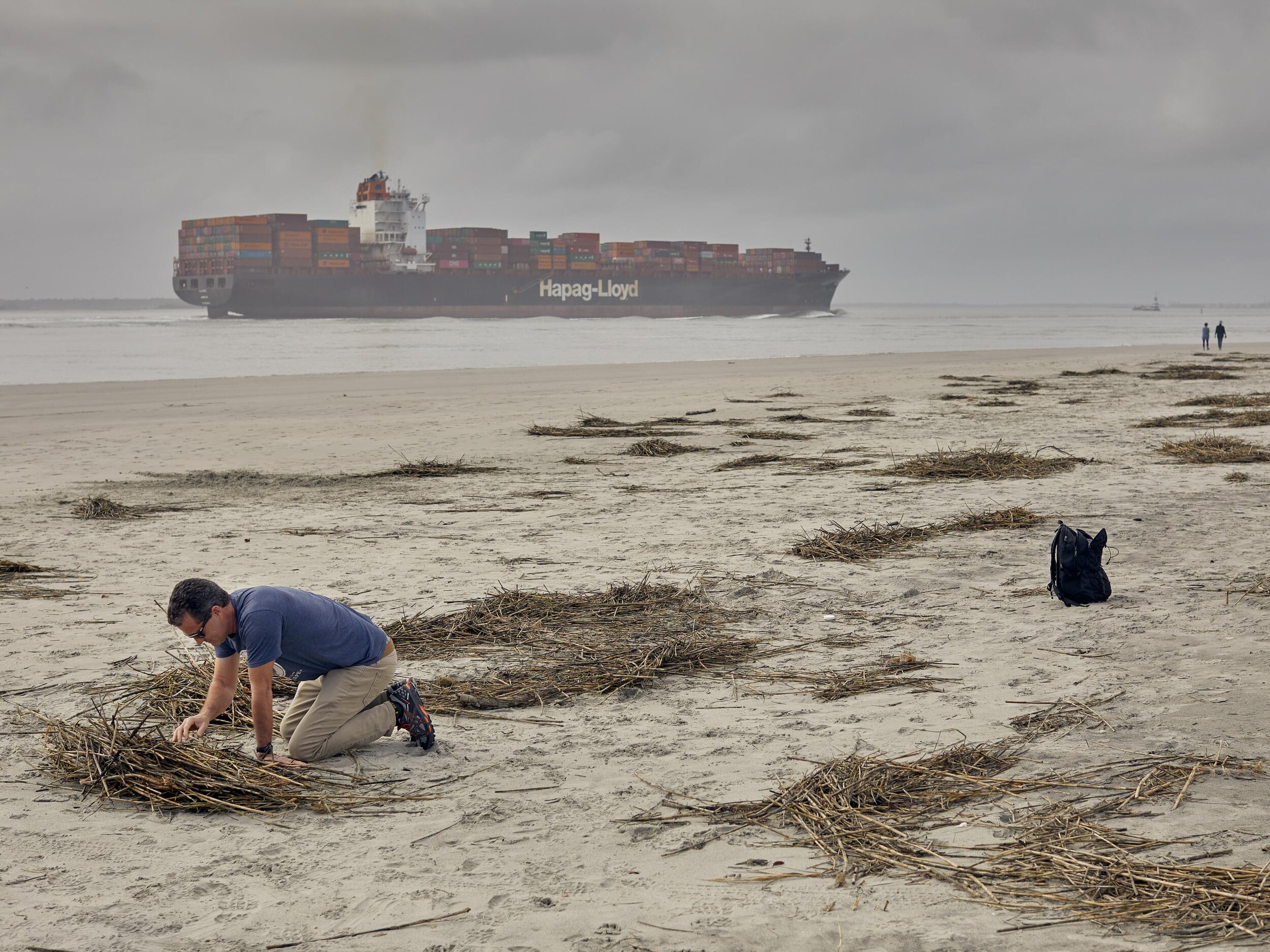
Charleston Waterkeeper Andrew Wunderly hunts for nurdles on Sullivan's Island in Charleston, South Carolina. Wunderly and Waterkeeper chief scientist Cheryl Carmack gather nurdles for research and as evidence in a lawsuit against a local shipping company that allegedly spilled them.
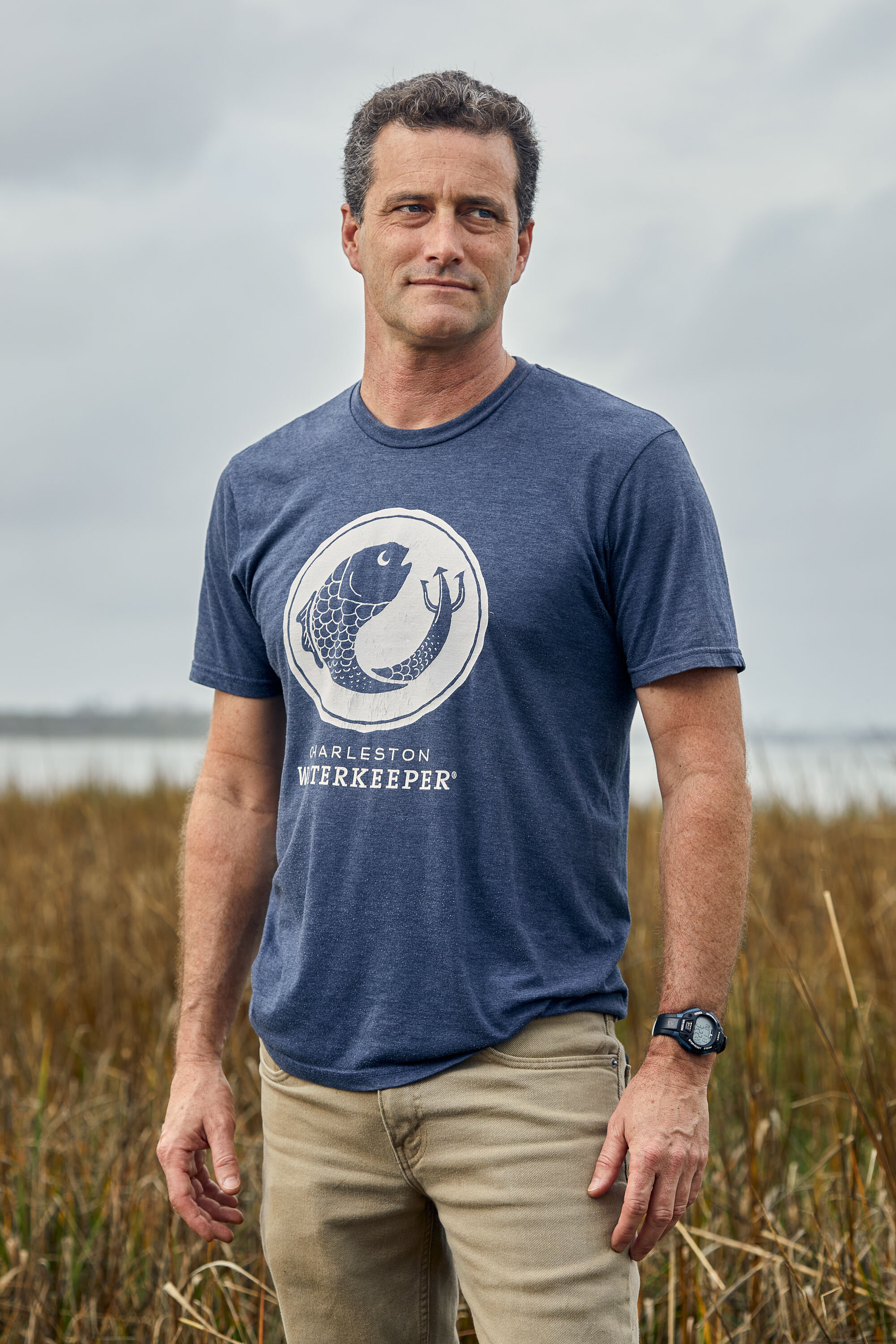
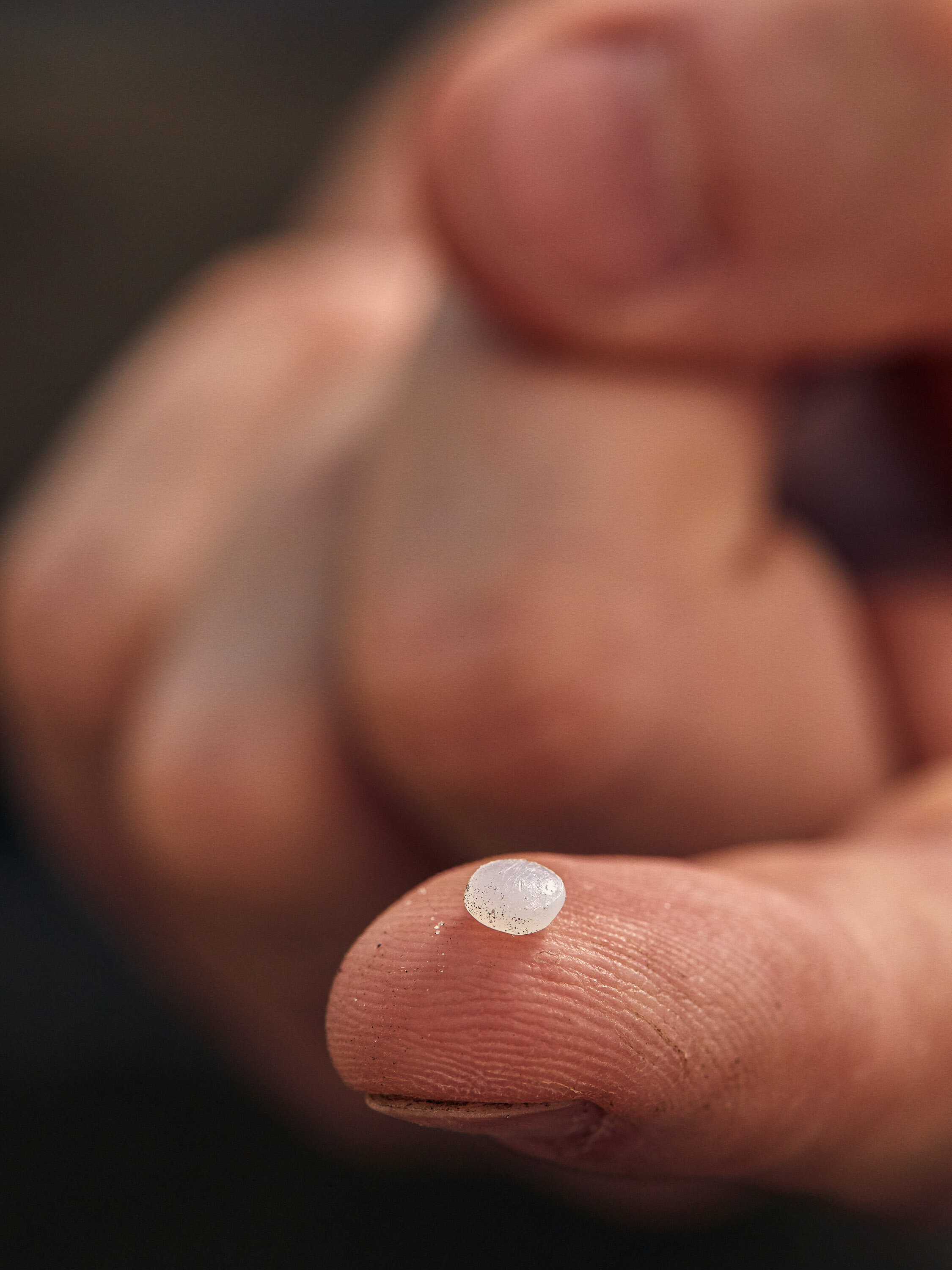
Less than 5 millimeters in size, nurdles are easy to miss but not hard to find in the Charleston area.
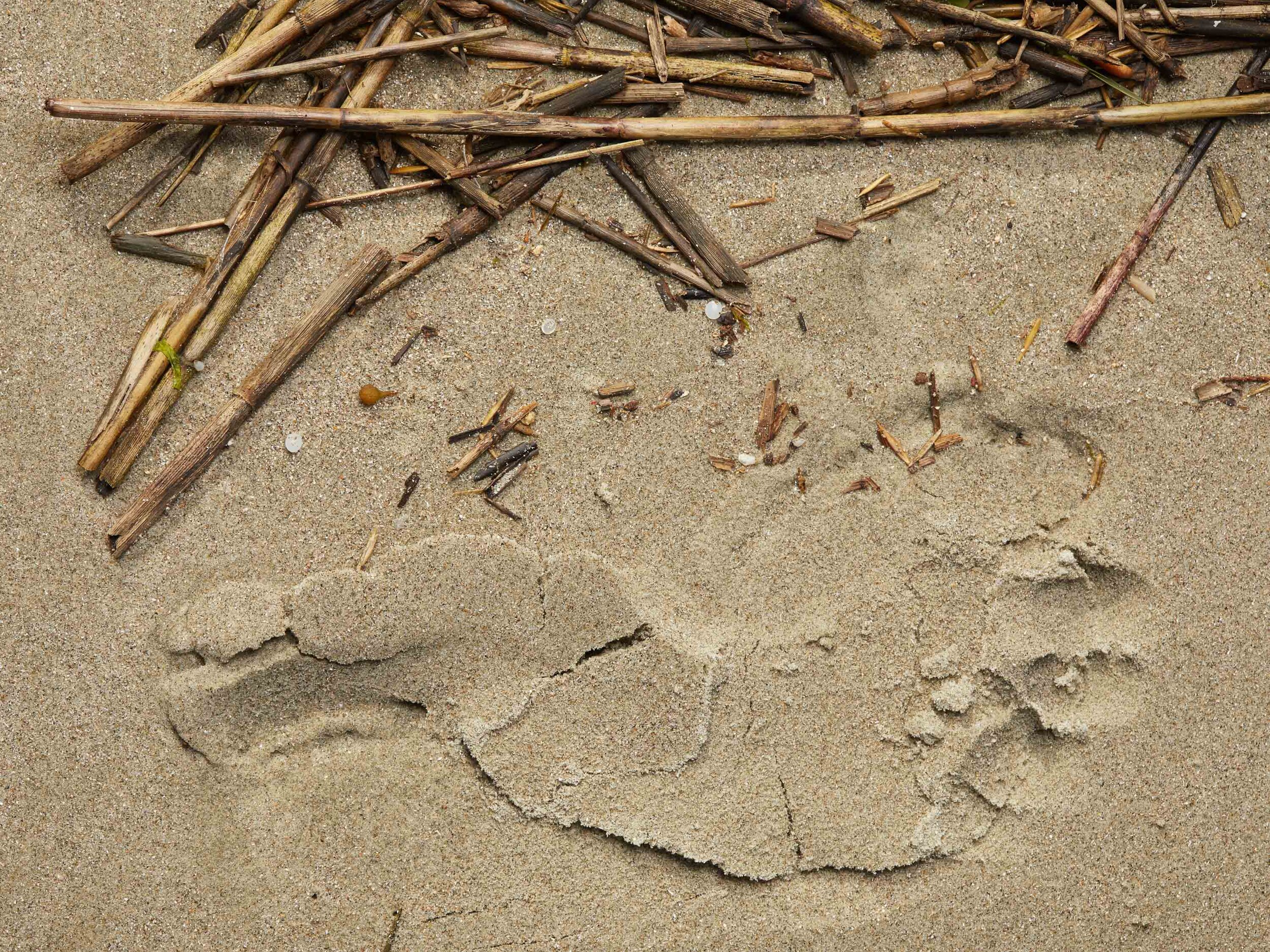
Can you spot the nurdles next to this human footprint on Sullivan’s Island?
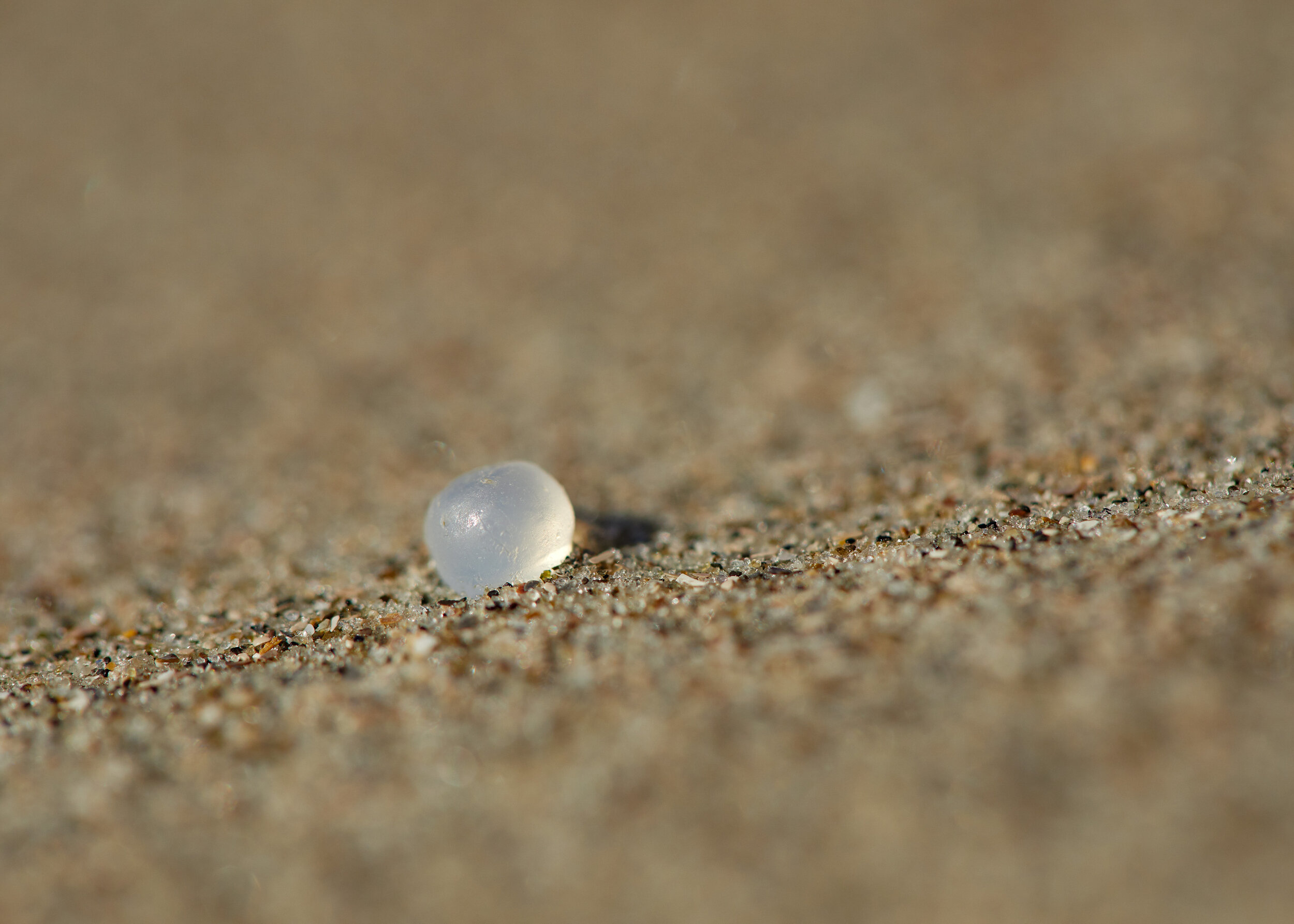
To do scientifically standard nurdle hunt, set a stopwatch for 10 minutes. Search near the waterline. If you don’t see one, check the recent high tide line or the foot of sand dunes. You might have to get on your knees to spot them. Start a timer when you find one and collect as many as you can in 10 minutes. If you don’t find any, “zero” is also useful data to share. Count your nurdles, and, remember, they don’t belong there—take them with you for disposal. Record the number of people who were sampling. Submit the data to nurdlepatrol.org. Locate your sampling site on the map; you can also opt to submit a photo.
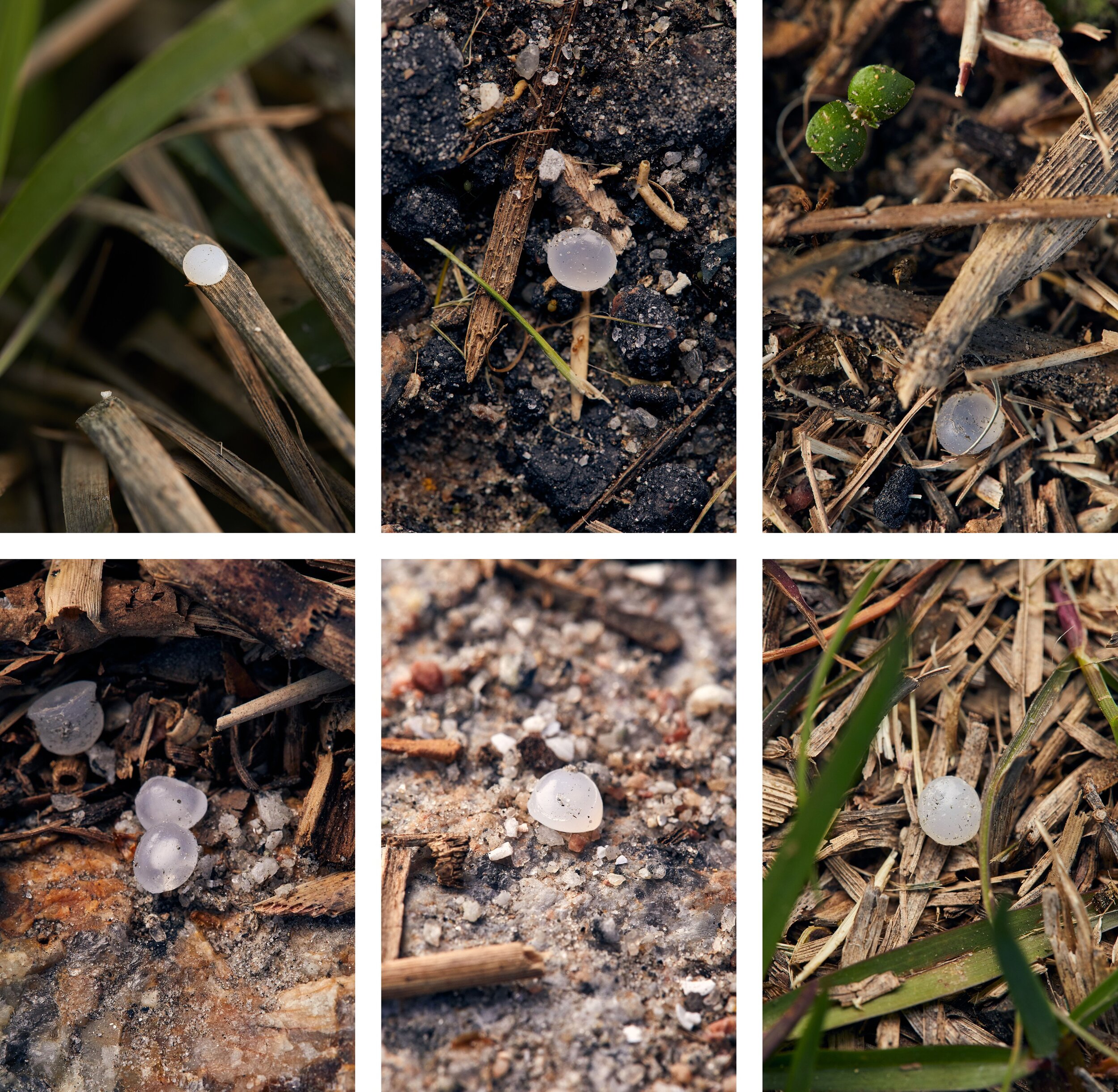
We found nurdles at every site we visited. Clockwise from left: A nurdle in a marsh; near a parking lot at the marina; in the grass near a sidewalk; on a walking path at Waterfront Park.
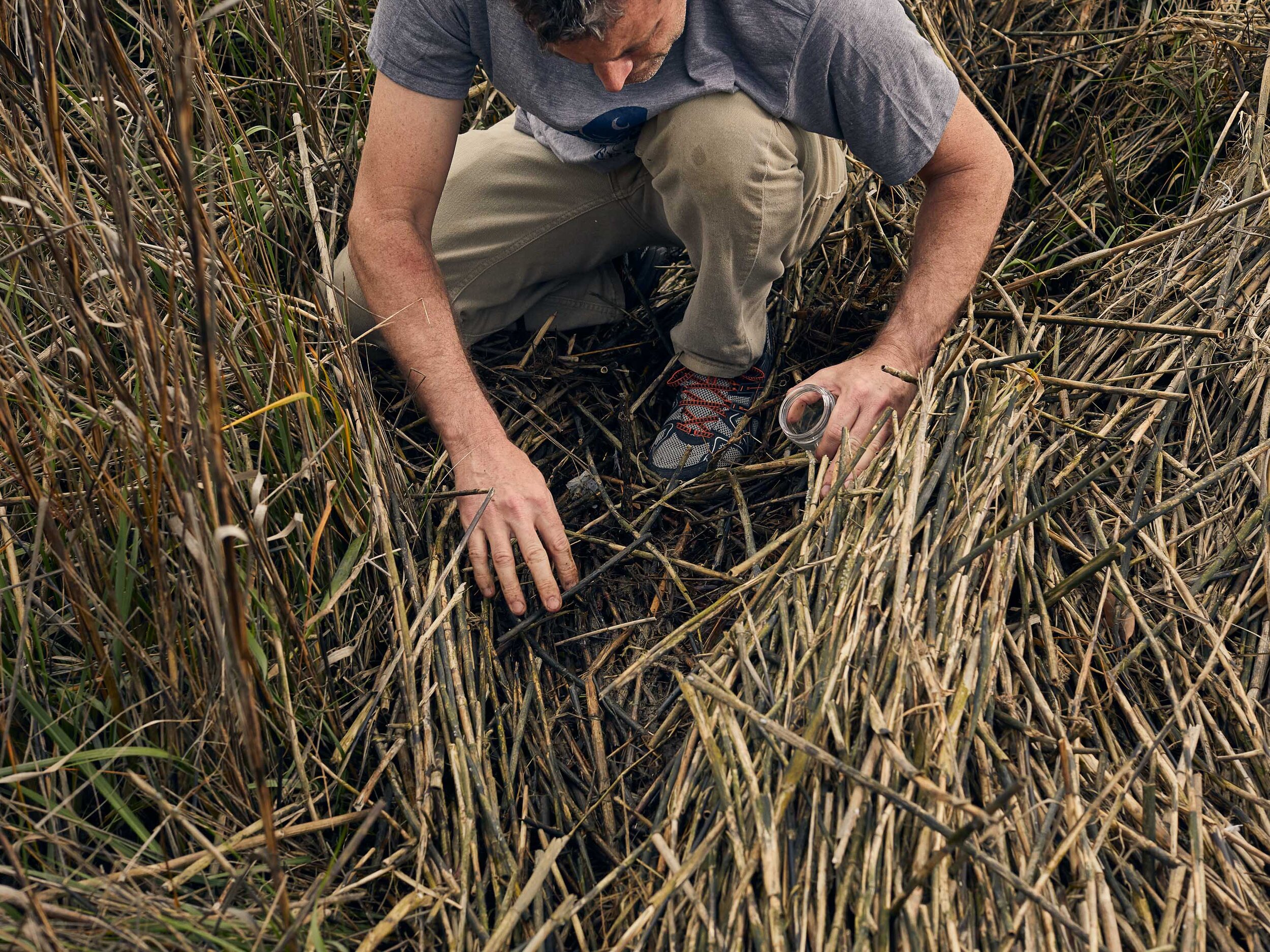
Charleston Waterkeeper Andrew Wunderly hunts for nurdles at Brittlebank Park, a site where he rarely finds them that acts as a “control” site for his collection protocol.
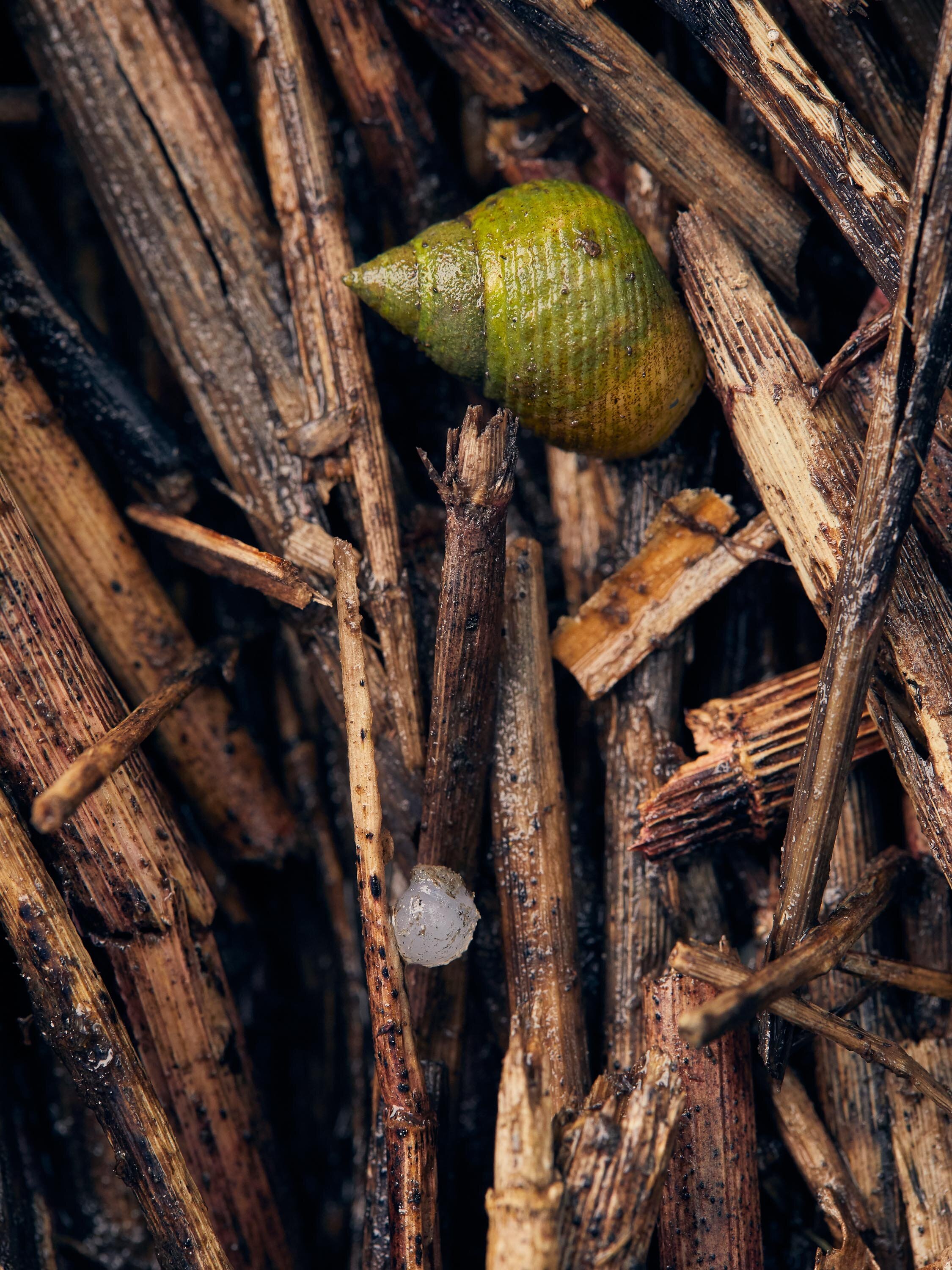
A nurdle in the dead spartina near a periwinkle snail.
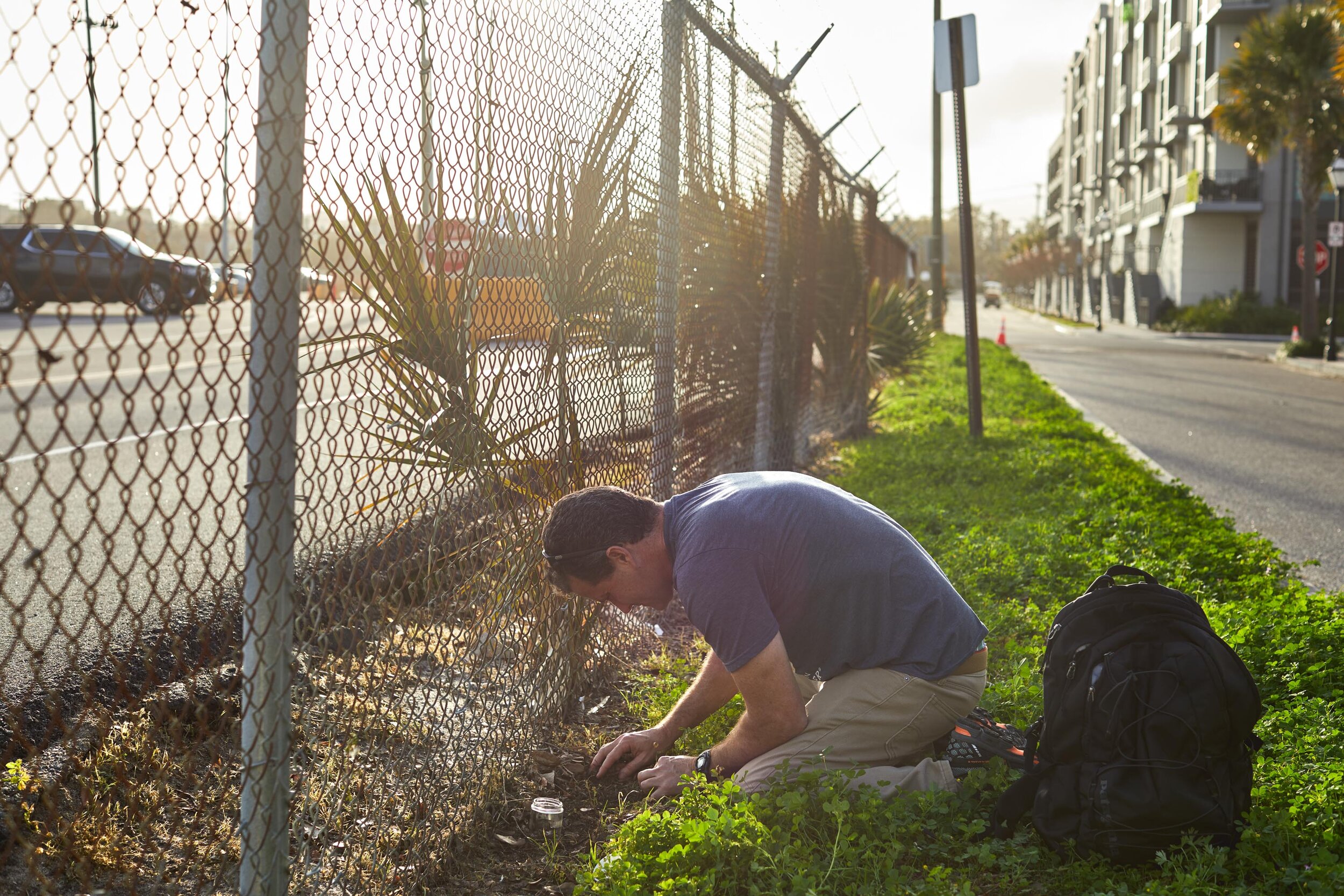
Wunderley hunts for nurdles near the fence and property line at Frontier Logistics, a local company that ships massive containers of nurdles.
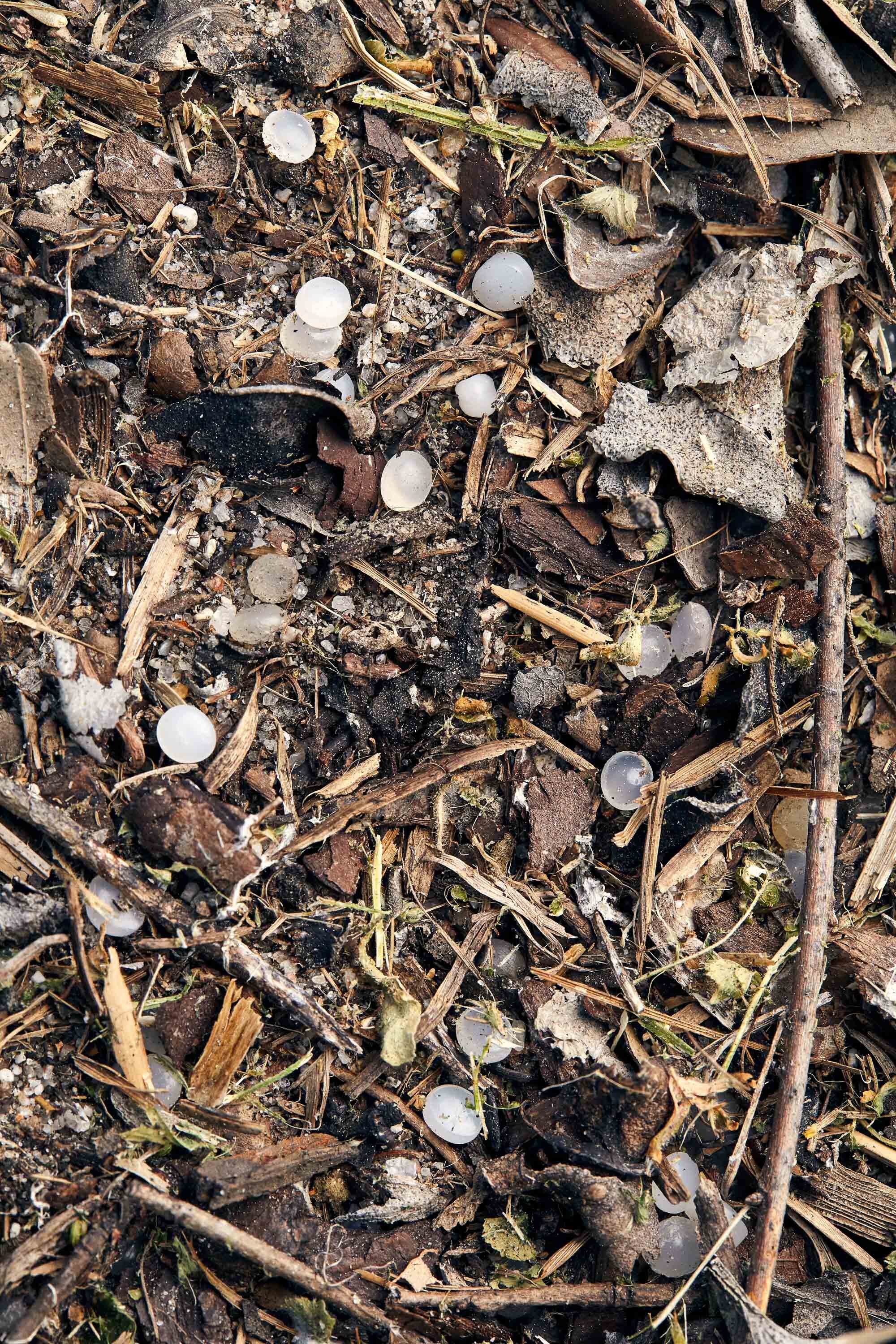
Nurdles in the leaf litter at the fence and property line of Frontier Logistics, a local company that ships massive containers of nurdles.
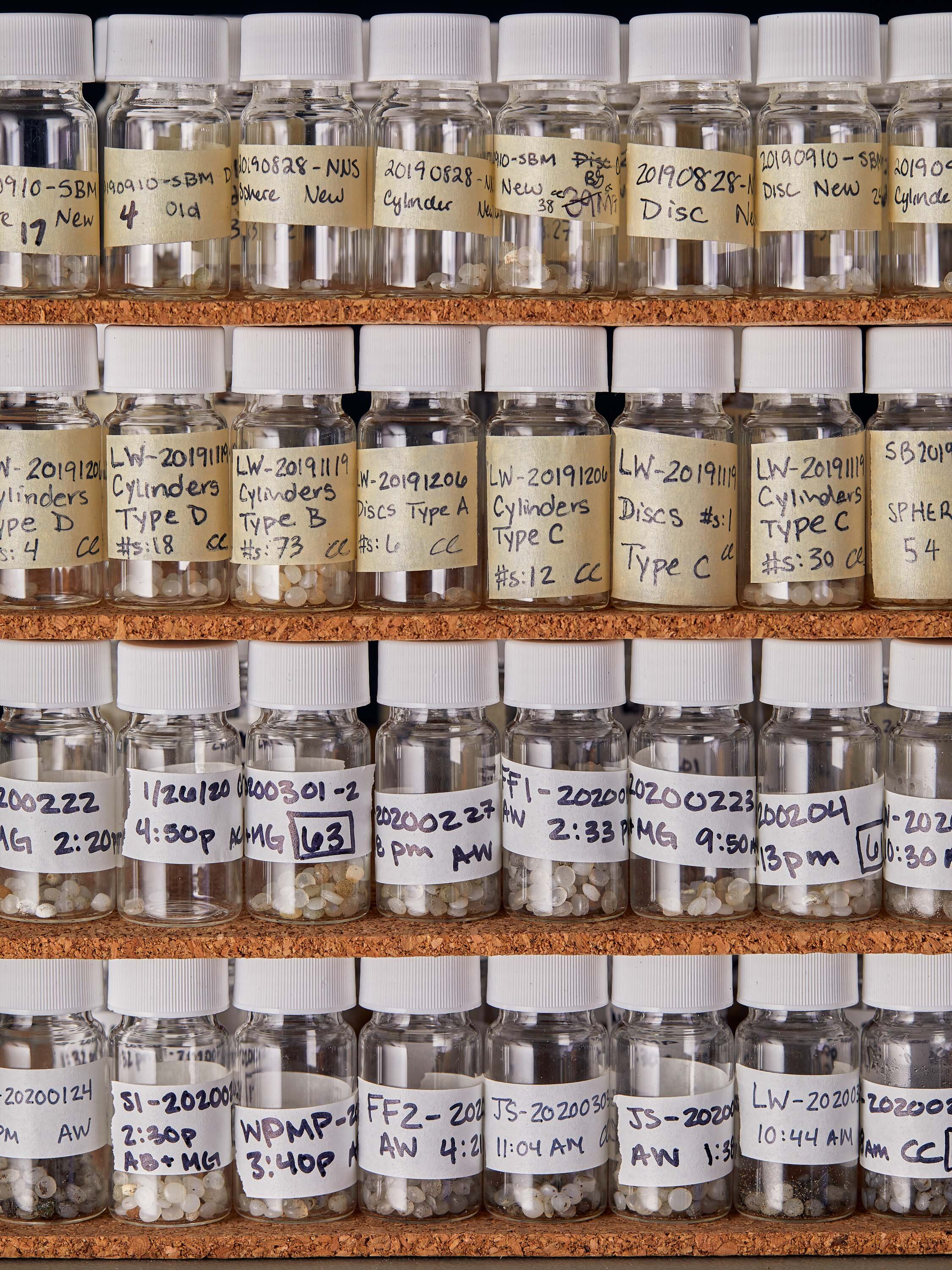
Wunderly and Carmack store nurdles they collect in jars labeled with date and time.
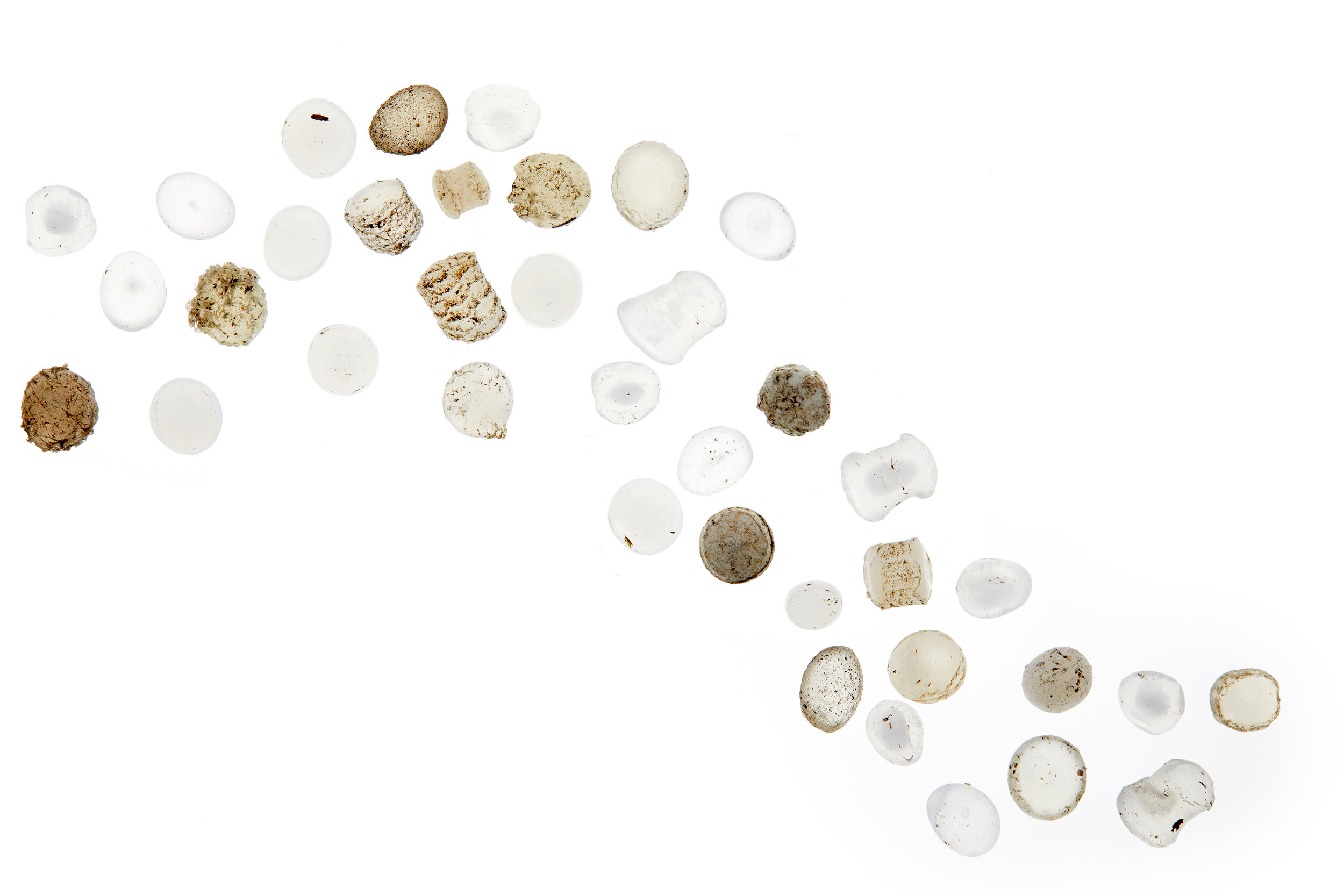














A close up of nurdles collected at Waterfront Park in Charleston, S.C. The color and shape of the pellets can reveal how recently the pellets were spilled.
Charleston Waterkeeper Andrew Wunderly hunts for nurdles on Sullivan's Island in Charleston, South Carolina. Wunderly and Waterkeeper chief scientist Cheryl Carmack gather nurdles for research and as evidence in a lawsuit against a local shipping company that allegedly spilled them.
Less than 5 millimeters in size, nurdles are easy to miss but not hard to find in the Charleston area.
Can you spot the nurdles next to this human footprint on Sullivan’s Island?
To do scientifically standard nurdle hunt, set a stopwatch for 10 minutes. Search near the waterline. If you don’t see one, check the recent high tide line or the foot of sand dunes. You might have to get on your knees to spot them. Start a timer when you find one and collect as many as you can in 10 minutes. If you don’t find any, “zero” is also useful data to share. Count your nurdles, and, remember, they don’t belong there—take them with you for disposal. Record the number of people who were sampling. Submit the data to nurdlepatrol.org. Locate your sampling site on the map; you can also opt to submit a photo.
We found nurdles at every site we visited. Clockwise from left: A nurdle in a marsh; near a parking lot at the marina; in the grass near a sidewalk; on a walking path at Waterfront Park.
Charleston Waterkeeper Andrew Wunderly hunts for nurdles at Brittlebank Park, a site where he rarely finds them that acts as a “control” site for his collection protocol.
A nurdle in the dead spartina near a periwinkle snail.
Wunderley hunts for nurdles near the fence and property line at Frontier Logistics, a local company that ships massive containers of nurdles.
Nurdles in the leaf litter at the fence and property line of Frontier Logistics, a local company that ships massive containers of nurdles.
Wunderly and Carmack store nurdles they collect in jars labeled with date and time.
